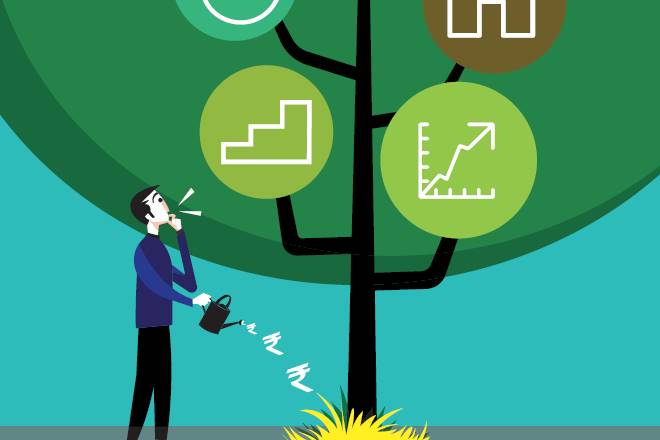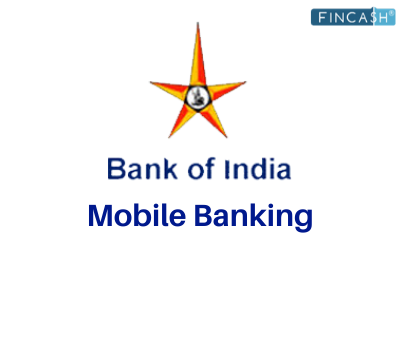
Fincash » U.S. Federal Reserve System » Top Digital Banking Trends in the U.S. to Watch
Table of Contents
Top Digital Banking Trends in the U.S. to Watch in 2025
The world of banking is undergoing a rapid transformation, driven by technological advancements and changing consumer expectations.

In the United States, digital banking has become a critical component of the financial landscape. As we move into 2024, several trends are set to shape the future of digital banking, making banking more efficient, secure, and user-friendly for the American population. Here’s a look at the key trends to watch.
1. Increased Adoption of Artificial Intelligence (AI) and Machine Learning (ML)
AI and ML are revolutionising the banking Industry by enabling more personalised and efficient services. Banks are using these technologies to analyse vast amounts of data, predict customer needs, and offer tailored financial products. AI-powered chatbots and virtual assistants are becoming common, providing 24/7 customer support and automating routine tasks. For instance, Bank of America’s Erica is an AI-driven virtual assistant that helps customers with transactions, budgeting tips, and account insights. As these technologies become more sophisticated, we can expect even more seamless and intuitive banking experiences.
2. Expansion of Mobile Banking Services
Mobile banking continues to grow in popularity among U.S. consumers. With the convenience of managing finances on the go, mobile banking apps are now a standard Offering. Banks are Investing heavily in enhancing their mobile platforms to include features such as mobile check deposits, instant transfers, and personalised financial advice. In 2024, we can anticipate further advancements in mobile banking, including more robust security measures like biometric authentication and enhanced user interfaces that make financial management simpler and more engaging.
Talk to our investment specialist
3. Rise of Digital-Only Banks
Digital-only banks, or neobanks, have been gaining traction over the past few years. These banks operate without physical branches, offering all their services online. Neobanks like Chime, Varo, and Current are attracting a significant number of customers, particularly among younger demographics who prefer digital solutions over traditional banking. These banks offer competitive advantages such as lower fees, higher interest rates on savings accounts, and innovative features like early direct deposit and automatic savings tools. In 2024, we expect the number and influence of digital-only banks to continue to rise, providing more options for consumers seeking convenient and cost-effective banking solutions.
4. Enhanced Cybersecurity Measures
With the rise in digital banking, cybersecurity has become a top priority. Banks are continually improving their security protocols to protect customer data from cyber threats. Multi-Factor authentication (MFA), encryption, and real-time fraud detection systems are becoming standard. In 2024, we can expect banks to adopt even more advanced cybersecurity measures, including the use of AI to detect suspicious activities, blockchain technology for secure transactions, and biometric verification methods such as facial recognition and fingerprint scanning.
5. Integration of Financial Wellness Tools
Banks are increasingly focusing on the financial wellness of their customers. Digital banking platforms are integrating tools that help users manage their finances better, such as budgeting apps, savings goal trackers, and personalised financial advice. For example, apps like Mint and YNAB (You Need a Budget) are popular among users looking to improve their financial health. In 2024, more banks will likely incorporate similar tools directly into their mobile and online platforms, providing customers with comprehensive resources to manage their finances effectively.
6. Expansion of Open Banking
Open banking allows third-party financial service providers to access consumer banking information (with their consent) to offer more personalised and competitive financial products. This trend is gaining momentum in the U.S., driven by consumer demand for greater transparency and control over their financial data. In 2024, we can expect more banks to embrace open banking, enabling consumers to seamlessly integrate various financial services and products into a single platform. This integration will foster innovation and competition, ultimately benefiting consumers with better services and lower costs.
7. Growing Importance of Environmental, Social, and Governance (ESG) Factors
Sustainability and ethical considerations are becoming increasingly important to consumers. Banks are responding by incorporating ESG factors into their operations and product offerings. This includes financing green projects, reducing their carbon footprint, and promoting inclusive banking practices. In 2024, the emphasis on ESG will likely grow, with more banks adopting sustainable practices and offering products that align with the values of environmentally and socially conscious consumers.
8. Advancements in Blockchain Technology
Blockchain technology, best known as the Underlying technology for cryptocurrencies, is being explored for various banking applications. It offers enhanced security, transparency, and Efficiency for transactions and data management. In 2024, we can expect to see more banks experimenting with blockchain for use cases such as cross-border payments, smart contracts, and secure data sharing. These advancements will help streamline operations and reduce costs, benefiting both banks and their customers.
9. Evolution of Payment Systems
Digital payment systems are continually evolving, driven by consumer demand for faster, more convenient payment options. Mobile wallets like Apple Pay, Google Wallet, and PayPal are becoming increasingly popular, enabling contactless payments and peer-to-peer transfers. In 2024, we can expect further innovations in payment systems, including the wider adoption of real-time payments and the introduction of new digital currencies by central banks, such as the potential development of a U.S. digital dollar.
10. Customer Experience as a Differentiator
With increasing competition, banks are focusing more on delivering exceptional customer experiences. Personalisation, convenience, and seamless interactions across all touchpoints are becoming critical factors in attracting and retaining customers. Banks are leveraging Data Analytics and AI to gain insights into customer behaviour and preferences, allowing them to offer more relevant and timely services. In 2024, the emphasis on customer experience will continue to grow, with banks striving to exceed customer expectations and build long-lasting relationships.
Conclusion
As we move into 2024, the digital banking landscape in the U.S. is set to undergo significant changes. AI, mobile banking, digital-only banks, enhanced cybersecurity, financial wellness tools, open banking, ESG factors, blockchain technology, evolving payment systems, and a focus on customer experience will shape the future of banking. These trends reflect the industry's commitment to innovation, security, and customer satisfaction, ensuring that digital banking continues to meet the evolving needs of the American population.
All efforts have been made to ensure the information provided here is accurate. However, no guarantees are made regarding correctness of data. Please verify with scheme information document before making any investment.












